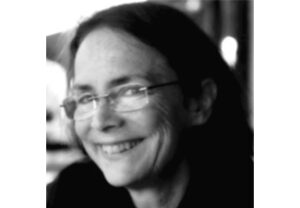
- This event has passed.
Continental Philosophy Group Talk (Bettina Bergo, Montreal)
Thursday November 10, 2022, 3:00 pm - Friday November 11, 2022, 5:00 pm
Event Navigation

The Continental Philosophy Group is pleased to welcome as its speaker Bettina Bergo, a professor of Philosophy at the Université de Montréal. Dr. Bergo’s research interests concern the connections between Husserlian phenomenology, psychoanalysis (Freudian and some contemporary), and continental thought on sensibility. The thematization of sensibility and alterity, as found in Levinas and Merleau-Ponty, in the formation of “I” and in some of sociality (notably that of Husserl on intersubjectivity) is the subject of current research.
Dr. Bergo will give a lecture on November 10, 3-5PM, and lead a workshop on November 11, also from 3-5PM. Please contact Tarek Dika if you are interested in attending the workshop or have questions.
Talk Title
Anxiety
Talk Abstract
My talk concerns certain core themes examined in the recent work Anxiety: A Philosophical History (Oxford, 2020): the meaning of an affect (sensation, emotion); the relationship(s) between affects and names provided them within a cultural setting; how one approaches two hundred years of philosophy from the perspective of an ‘affect’ admitting many distinct meanings. I approach these problems in light of the question of historic narrative: is there, for example, a thread permitting us to write an alternative history of criticism, idealism, romanticism—and, in the 20th century, phenomenology, psychoanalysis and hermeneutics? This is in no way to propose a philosophical or conceptual system. Instead, I use the authors examined to distill a number of interpretations of anxiety (largely “Angst”). I show as well that, starting from an affect (i.e., a sensation, feeling or emotion that attracts the attention of the ‘I’), it proves well-nigh impossible to propose a history, say, of systems of reason or spirit. The book is not a critique of such systems but instead an alternative narrative, one that frays rather than self-unifies over time—encountering the rise of “biology,” evolutionism, 20th century formalism (Husserl), and psychoanalytic excavations. In light of the limitations on time, I turn from a short discussion of my book to more recent work on emotions in persons and in groups or crowds. I am concerned to show here that 19th and early 20th century interpretations of the latter present a dismal portrait of the susceptibility of masses, or mass consciousness, whereas we should also consider some groups as self-organizing systems, able to channel anxiety into behaviors deserving to be called ‘intelligent.’
Workshop Description
In my “The Four Strands in Levinas’ Thought,” I attempt an overview of four sources of influence (and criticism) on the philosopher’s philosophical work. I contend—and of course this has to be shown—that we must read the philosophical work as the interweaving of Heideggerian hermeneutics, Husserlian phenomenology, Talmudic thought (as understood by Levinas), and some Jewish thought. This claim is largely uncontroversial. Less so, I believe, is the nature of Husserl and Heidegger’s influences, which entail some unremarked elements, including the ‘negative theology’ of Maimonides as a vector of deformalization. Another challenge Levinas took up was the adaptation of Heidegger’s conceptuality and its detournement, which translates a kind of gigantomachy between a recrudescent ‘paganism’ and a secularized ‘Judaism.’
About the Continental Philosophy Group
One of six departmental research interest groups, the Continental Philosophy Group works in the traditions of textual interpretation of human consciousness, phenomenology, and post-structuralist critical theory, among other related traditions of thought.
SHARE